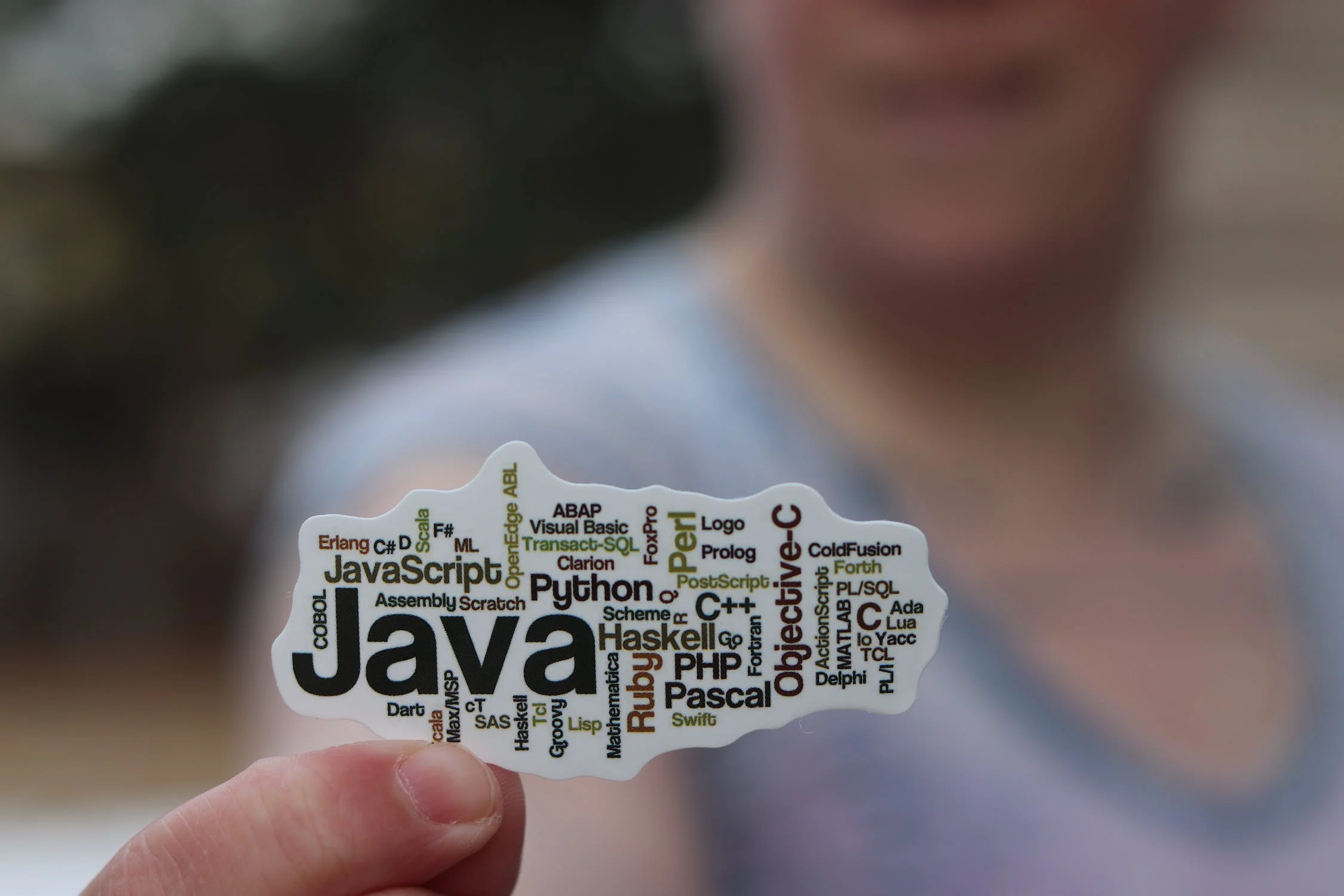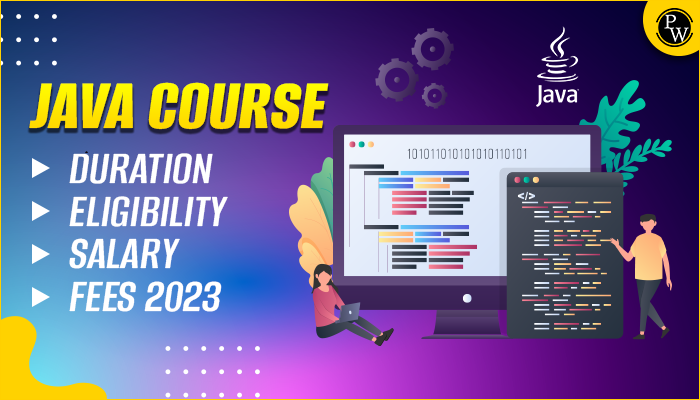Java program is a very famous and widely used programming language in the world of computer science. It is known for its reliability, effectiveness, and simplicity. It was developed by James Gosling in the mid-90s at Sun MicroSystems. It is now known as Oracle Corporation. Java is a platform-independent programming language, which makes it suitable for a broad range of fields and environments.
Today, more than a billion devices use Java program in various forms. It offers a wide scope of opportunities. It is often used for developing various applications like gaming, web servers, desktop applications, mobile applications, and much more.
Recommended Course
- Decode DSA with C++
- Full Stack Data Science Pro Course
- Java For Cloud Course
- Full Stack Web Development Course
- Data Analytics Course
History Of Java Program
The history of the Java language is vast and consists of a series of developments and progress leading to its current status as one of the most widely used programming languages in the world. The root of this language traces back to the mid-90s when James Gosling, Mike Sheridan, and Patrick Naughton started a project at Sun Microsystems known as Oak. Sun Microsystems introduced Java for the first time on May 23, 1995.
Java was first created for interactive television programming, but it quickly expanded. It started working and implementing Java as an independent language and gave the term write once and run everywhere. The Java Virtual Machine (JVM) helped make it possible on diverse platforms. In early 1996, Java 1.0 was the initial official version. It laid the foundation and implemented various libraries and features. Java was accepted widely in the late 1990s.
Java gained massive popularity in the early 2000s. It began developing powerful, dynamic web content and applications with the help of applets and servlets. Java was made open source in 2006 by Sun Microsystems, which started OpenJDK. Java was then acquired by the Oracle in 2010.
Today, Java Program is a very popular and widely used language and is used in web development at a large scale. There are various applications of Java nowadays, like backend systems, game development, android app development, security features, and many more. It is an adaptable language that keeps on improving itself in the coming years in the evolving environment of technology and software development.
Why Choose Java Program?
Java offers a lot of flexibility and ease of use, due to which everyone in the technological world prefers it. Let us know some of the major reasons we use Java as our main programming language.
- Java is one of the most popular languages in the world and is used almost in every sector related to the technological field.
- Java is platform-independent. Hence, it can work on different platforms like Windows, Mac, Linux, etc.
- Java is a versatile language and is used in various domains like development, testing, scientific computing, backend development, etc.
- Demand for Java programmers and developers is always on the high in the present job market.
- Java is available for free and is an open-source language.
- Java has a large community support base, which can help you easily access many resources, content, and frameworks.
- This language is scalable and a perfect fit for small businesses as large-scale industries.
- Java can run code in a sandbox environment and provides the best security features, ensuring data integrity at the best level.
- Java is an object-oriented programming language.
- It is not very complicated, and programmers who use other languages can easily shift to it.
- Java also supports multithreading, which helps developers build applications that support multiple tasks at once.
- Java also manages its memory very efficiently with the help of the garbage collection method.
- We also get an extensive Java library which is also known as Java Standard Library (JSL).
Let us look at an example of Hello World. This program in the table will print Hello, World! Using the simple system.out.println method inside the main function.
| Java Hello World Program |
| public class HelloWorld
{
public static void main(String[] args) {
System.out.println(“Hello, World!”); } } |
Output:
| Output |
| javac HelloWorld.java |
Difference Between Java And C++
Java and C++ are often compared, and many beginners are always confused about which language to choose. Java or C++, which is better. Let us find the answer in the table given here in the table.
| Features | C++ | Java |
| Platform Independence | Platform-dependent | Platform-independent |
| Memory Management |
|
|
| Multiple Inheritance | Supports multiple inheritances in which a class can be inherited from multiple parent classes. | Supports single inheritance for classes but allows multiple inheritance for interfaces via interface implementation. |
| Pointers | Supports pointers and direct memory manipulation. | No pointers are used.
References to objects are used. |
| Exception Handling | Supports exception handling with the try-catch mechanism. | Supports exception handling with the try-catch mechanism. |
| Operator Overloading | Allows operator overloading for user-defined types. | Does not allow operator overloading. |
| Garbage Collection | Manual memory management. No automatic garbage collection. | Automatic garbage collection; no need for manual memory management. |
| Object-Oriented | Object-oriented with classes and objects. | Object-oriented with classes and objects. |
| Standard Libraries | Standard Template Library (STL) for different data structures and algorithms. | Java Standard Library (JSL) for common tasks and data structures. |
| Threading | Supports multithreading via libraries like pthreads. | Built-in support for multithreading with the Thread class. |
| Access Control | Uses access specifiers like public, private, and protected. | Uses access modifiers like public, private, and protected. |
| Preprocessor | Uses a preprocessor for macro definitions and conditional compilation. | There is no preprocessor. It only relies on conditional compilation. |
| Community and Ecosystem | Large C++ community with numerous libraries and frameworks. | Large Java community with extensive libraries, frameworks (e.g., Spring), and tools (e.g., Eclipse, IntelliJ IDEA). |
| Performance | Typically offers competitive performance, especially in low-level tasks. | Generally, good performance may be slower than C++ in certain scenarios. |
| Use Cases | Commonly used for system-level programming, game development, and performance-critical applications. | Widely used for web and enterprise applications, Android app development, and distributed systems. |
Java Development Kit (JDK)
Java Development Kit, popularly known as JDK, is a software package used for building, running, and testing Java applications by developers. It provides various tools and libraries for development work. Some major tools inside the JDK are JVM, libraries, Java FX, debugging tools, packaging tools, and others.
Java Development Environment (JDE)
Java Development Environment (JDE) is referred to as an Integrated Development Environment (IDE). It is a software program with a collection of tools that gives programmers everything they require to create, edit, compile, manage, and debug Java applications.
Java Virtual Machine (JVM)
The Java Virtual Machine (JVM) is a fundamental component of the Java programming language and platform. It is an essential component of the Java runtime environment and is essential for running Java programs.
The JVM is used to run and interpret Java programs when you run them using the JRE and JDK.
Java Garbage Collector
Java Collector in Java is an essential component of the Java Virtual Machine (JVM), which is responsible for undertaking automatic memory management. Its primary objective is to recover memory no longer used by Java objects. It helps in preventing memory leaks and helps them efficiently manage the allocation and deallocation of memory.
Introduction To Java FAQs
Q1. What role does Java play in the current technological environment?
Ans: Java program is a widely used programming language which is known for its reliability and platform independence. It is used and is essential in various fields like web development, mobile app development, and more.
Q2. How did Java evolve through the years to become the most popular programming language?
Ans: The Java history goes back from its creation at Sun Microsystems to its open-source adoption and eventual purchase by Oracle. Learn more about it in detail in this article.
Q3. Why should developers choose Java as their programming language?
Ans: Java offers versatility, a large supporting community, and platform independence features, making it a top choice for many developers.
Q4. What are the key differences between Java and C++, and how do they impact development choices?
Ans: C++ and Java have separate characteristics, such as memory management, multiple inheritance, and performance. Understanding these differences can help developers choose the right language for their projects. However, a brief explanation of the major difference is given.




